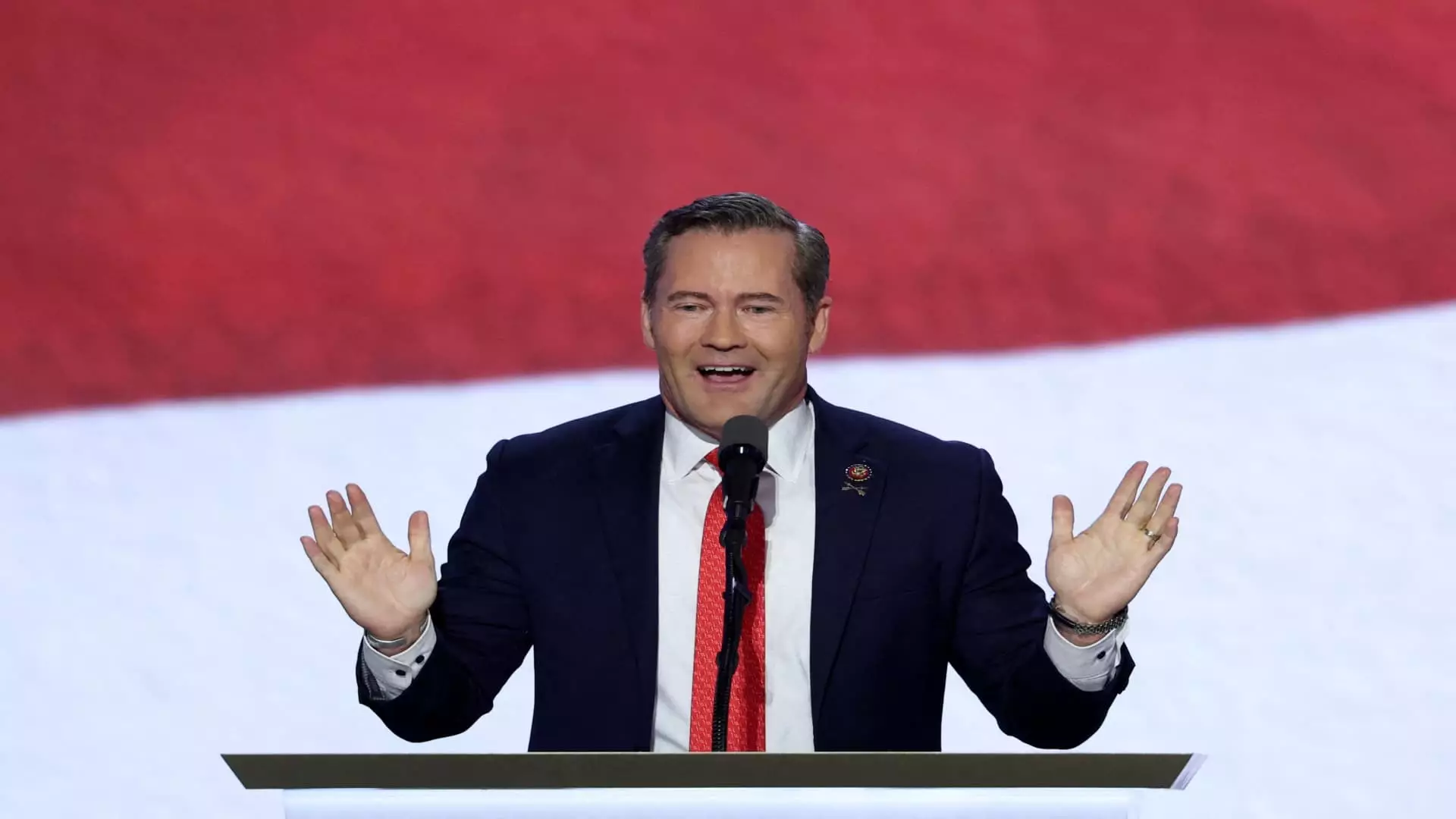The appointment of Rep. Mike Waltz, R-Fla., as Donald Trump’s national security adviser heralds a shift in focus towards a more aggressive and militaristic foreign policy. Waltz, a distinguished Green Beret veteran with experience in conflict zones like Afghanistan and the Middle East, brings a unique perspective to an office that has often held considerable sway over America’s global strategy. His selection is notable not only for his military background but also for his hawkish stance on China and skepticism regarding U.S. foreign aid commitments.
Having served as a Green Beret, Waltz’s military credentials are substantial and resonate with those who value experience in national defense matters. His tenure in regions marked by turmoil allows him to leverage practical insights in a political environment often cushioned by theoretical discussions. His role in Congress since 2019 has further familiarized him with the intricacies of American defense policy through his involvement in key committees such as Armed Services and Foreign Affairs. This combination of military and legislative experience positions him to navigate the complexities of national security effectively, though it also raises questions about his approach to diplomacy.
Waltz’s record indicates a confrontational approach toward China, highlighting his membership in the House’s China Task Force. He argues that the U.S. remains underprepared for potential conflicts in the Asia-Pacific region. This stance aligns with a broader GOP narrative that emphasizes a robust military presence as a deterrent against Chinese expansionism. Interestingly, Waltz has been critical of U.S. aid to Ukraine amid its ongoing war with Russia. His assertion that the U.S. could leverage its position to broker a ‘diplomatic resolution’ suggests a strategic pivot towards negotiation rather than confrontation, albeit within a framework of strong military readiness.
One notable aspect of Waltz’s appointment is that it does not require Senate confirmation due to the nature of the national security adviser role. This autonomy allows for a swifter implementation of policy shifts, but it might also lead to a lack of oversight that is typically afforded through the confirmation process. Critics may view this as a risk, especially given Waltz’s controversial views on foreign military engagements and support for allies, which could skirt the important discussions necessary for a cohesive foreign policy strategy.
Donald Trump’s choice of Mike Waltz as national security adviser reflects a commitment to a forceful approach in international relations. Waltz’s military background, critical stance on China, and controversial views on Ukraine’s aid present both potential advantages and challenges for U.S. foreign policy. As Waltz steps into this pivotal role, stakeholders will likely face a landscape dominated by military considerations, where the balance between power and diplomacy will be continually tested. The coming months will reveal how his perspective shapes U.S. actions on the global stage.

